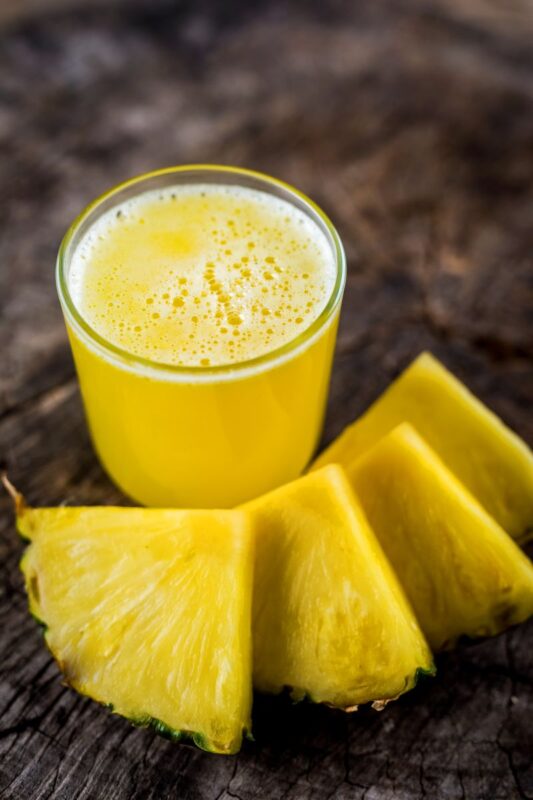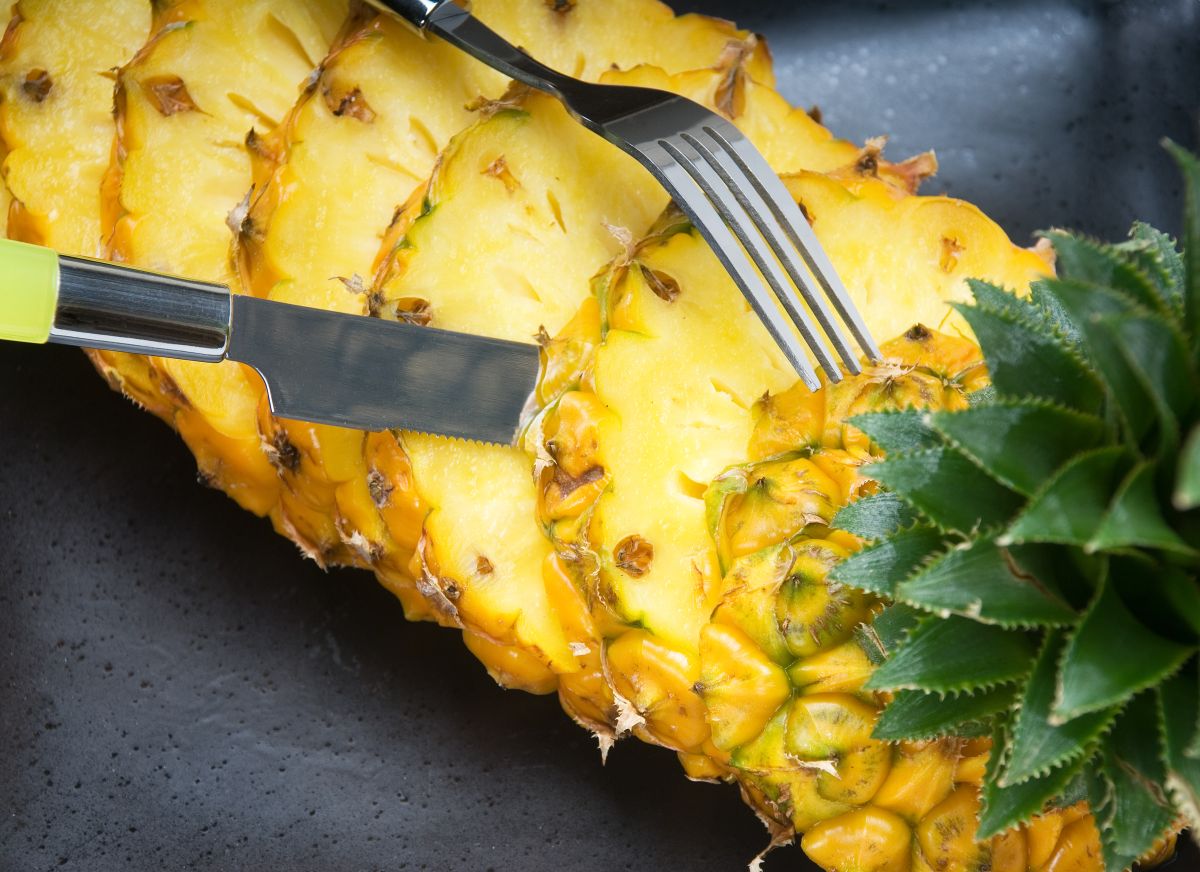Fatty liver is now a word that has become more and more common, unfortunately. But what to eat and what to stay away from is not common knowledge.
As a person who was diagnosed with a fatty liver and managed to reverse the condition, I am here today to talk to you about eating Pineapple if you have a fatty liver. Should you do it or not? Let’s dive right in!
Yes! Pineapple is good for fatty liver disease. You can still have this fruit after being diagnosed, as long as you keep portions small. It comes with various good effects, breaking down toxins and being rich in vitamins and minerals.
It also is rich in carbohydrates – which turn into sugar, which is bad for our general health and especially a fatty liver.
But just like bananas or other sweet fruits, pineapple has many other benefits too that make it safe to eat (as long as you keep portion sizes under control).
Pineapples contain various components including magnesium, potassium, sodium, and carbohydrates.
Bromelain, however, is the main component and it aids in various ways, in weight reduction and management of fatty liver in the long run.
How Do Pineapples Benefit a Fatty Liver

Research has shown that this fruit reduces fatty liver disease, especially through the action of bromelain.
Bromelain is a group of enzymes and one of the ways it does this is by promoting the catabolic pathway through beta-oxidation pathways of fatty acids. In English, this means that it helps reduce fat accumulation in the liver.
You can go a bit more in-depth with Bromelain on the NIH website.
Another benefit is that pineapple reduces glycerol and lipid accumulation in the liver.
It also reduces body and organ weight gain. Looking into this in detail, it has been shown that the weight of white adipose tissue and cholesteryl ester levels decrease but the weight of brown fat and level of HDL increase.
You should, therefore, note that it reduces the ‘bad’ fat and increase ‘good’ fat but total serum cholesterol remains unchanged.
Additional benefits to the overall health are that bromelain aids in digestion and absorption of protein enhances the immune system, and improves heart health.
This, therefore, improves the quality of life of any individual and also slows the progression of the disease.
Pineapples have other benefits too
It’s not just the bromelain that is considered to help us get back on track when it comes to eating pineapples.
100 grams of pineapple have just 13 grams of carbs (similar to oranges, for example), but 1.4 grams out of those are fiber.
While it’s not a huge amount of fiber if we are to compare it with other fruits, it’s still a fair amount that will make the overall absorption of the sugar slower-paced (which is better).

100 grams of pineapple also give us 79% of the daily recommended intake of Vitamin C, plus other vitamins in minerals in lower amounts: Vitamin B6, Calcium, Magnesium, Potassium, and even a bit of Iron.
It also has manganese, which is an antioxidant – and we need these to keep our bodies in tip-top shape.
Overall, despite the fact that it does pack a punch in terms of carbs, Pineapple has many benefits that shouldn’t be ignored, even if you have a fatty liver.
Just make sure to keep your portions under control and always look at the big picture: keep track of your calories and especially carbs at the end of the day. As long as you’re under your target, you have no reasons to worry.
Incorporating Pineapples into your Fatty Liver Diet

One of the best things about the foods provided by nature is that they are highly versatile. They can easily be tweaked into anything for consumption.
We will, therefore, explore the various ways through which pineapples can be incorporated into your diet for your benefit, and they are still attractive or tasteful at the end of the day.
Generally, pineapples can be eaten in dried form, juiced, or whole.
They can be incorporated into your diet from breakfast to dinner through their different forms.
I personally prefer eating pineapples as a fatty liver-friendly dessert or a snack – usually half a cup to a cup.
You can also use them in smoothies with other fruits and some protein powder if you need more, or make your own fruit salad.
Since we can’t eat pizza if we suffer from a fatty liver disease, we don’t even have to start a debate about whether or not pineapple is a suitable topping. Ha!
All in all, as long as you don’t have other health problems that specifically prohibit the consumption of pineapples, you should be fine eating them in moderation if you have a fatty liver disease.
Just make sure to eat pineapple that was or is not served with extra sugar. If you choose canned pineapple, double-check to make sure that there’s no sugar in the syrup.
Also, I don’t recommend consuming it as a juice, as you will remove most of the good nutrients, especially fiber. You can read more about drinking juice and sodas in my previous article.
Conclusion
In conclusion, pineapple can still be eaten if you have a fatty liver. It has mechanisms by which it reduces fatty liver including bromelain, a group of enzymes, highly concentrated in the stem which facilitates the catabolic pathway of fatty acids.
Additionally, pineapples reduce inflammation, improve the immune system, and enhance the digestion of proteins, and all of these improve the quality of life when you have fatty liver.
Pineapples can be incorporated as part of the liver-friendly Mediterranean diet and due to their versatility, there are various ways to incorporate them but ensure they are not eaten in excess.
I personally ate pineapples every now and then and managed to reverse my fatty liver.
I am not attributing my success to this fruit, but it surely does no harm as long as it is part of a healthy diet, powered up by exercising and all the required lifestyle changes like reducing stress and getting enough sleep.

I was diagnosed with a fatty liver back in 2014 and managed to reverse it by mid-2015. Since then, I’ve been studying it, continuously updating my knowledge with the latest scientific findings and practical approaches to give others the help they need to reverse their condition.
My approach to managing fatty liver is holistic, balancing scientifically-backed information with real-life, practical advice based on personal, direct experience.
I am also the admin of the Fatty Liver Support Group on Facebook and the Fatty Liver Subreddit.

